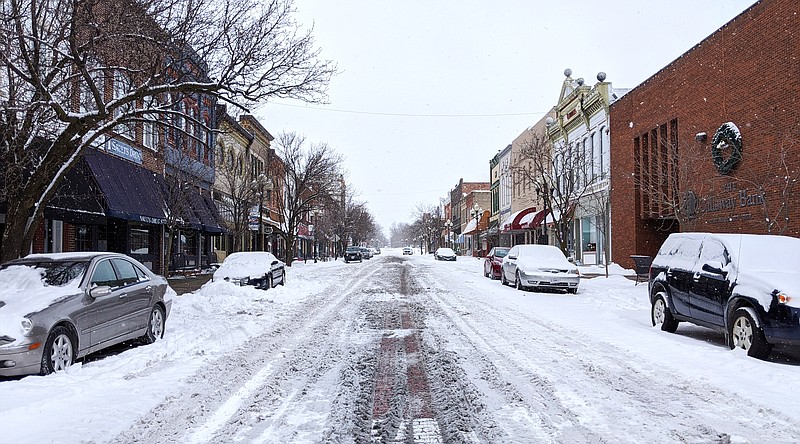The Fulton City Council will hear an update on the state of natural gas and electricity prices during Tuesday evening's meeting.
Tuesday's meeting begins at 6:30 p.m. at Fulton City Hall (18 E. 4th St.). Meetings are open to the public, but seating is limited due to social distancing requirements. Meetings are also live streamed at fultonmo.org and the city's YouTube channel.
The City of Fulton first asked residents on Feb. 12 to begin conserving natural gas, when the city learned from its provider cold temperatures had frozen natural gas wells in a number of states and caused a massive price spike. From Feb. 13-16, the city paid an extra $680,000 per day to provide natural gas to its customers. Electricity prices also shot up, though not to the same extent.
Since then, natural gas prices have declined significantly. But, according to MISO Energy's live market data map, as of Saturday, the Mid-Missouri area is still paying at least four times as much per unit than it was before the crisis began.
Last Tuesday, city council members gathered to discuss the situation, though they did not vote on any action. For now, Fulton customers will continue paying current natural gas and electricity rates for the city. And unlike some parts of Missouri and the nation, Fulton isn't facing rolling blackouts as energy providers try to reduce demand.
Discussion continues on how best to deal with the hit to the natural gas fund.
"Obviously, our customers can't afford those exorbitant costs," Fulton chief financial officer Kathy Holschlag said last Tuesday.
Other business
Natural gas isn't the only thing on Tuesday's agenda.
City council members will also hear updates about the city's ongoing battle with its Smart Grid.
In the early 2010s, with the help of a U.S. Department of Energy grant, the city installed smart meters for every residential and commercial electric customer within city limits. The cost to install the 5,500 or so meters totaled around $3 million, with the federal government paying for half. But the city has shelled out at least half as much again since then making the system work.
The Smart Grid was supposed to save Fulton employees from having to drive around to manually check each meter in town each month, reducing personnel costs and pollution emissions. It was also intended to help the utility department monitor and quickly pinpoint outages.
In 2019, the entire system crashed, forcing the city to rebuild the servers. The meters still accurately monitored energy consumption - but that information wasn't fed back to the billing system. Instead, employees had to go out and take manual readings.
Since then, the city has changed billing systems and successfully reconnected some of the meters to it. Others still aren't working right - many must be manually reentered into the new database. City administration seems to be nearing the end of its patience with the finicky system.
"This is working in small towns and in large towns, and we just can't get it," Fulton Director of Administration Bill Johnson said in late January during a utility board meeting. "At some point it'll be time to say we're going to keep funding this or say we're done and pull the plug."
Tamara Tateosian, executive director for the Callaway Chamber of Commerce, will present a quarterly update on the chamber's activities.
Council members also plan to discuss city-owned pasture land, which the city rents out to area farmers each year.
One ordinance will have its first reading Tuesday. Bill 1608 reenacts Section 2-9 through 2-13 of Fulton's City Code. That portion of the code pertains to Fulton's annual financial disclosure requirements.
Bill 1606 is up for its third and final reading. If passed, it would reclassify the empty tract from an R-1 Residential District to an R-3 residential district, like the surrounding land. Huey Property owns the land and wants to build three duplex units there.

